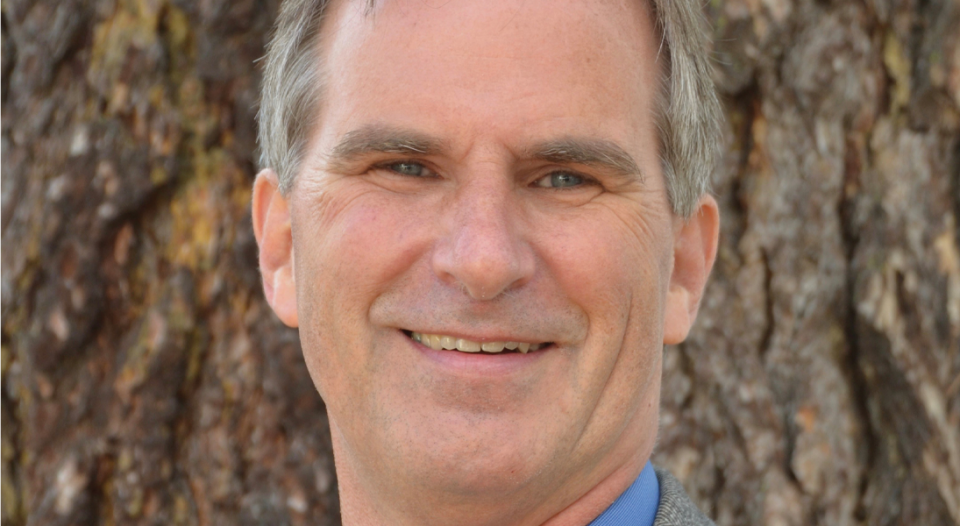Faith Lutheran Church, Leavenworth, Wash.
Mayor of Leavenworth and manager of Cornerstone Community, a home for adults with learning disabilities
Growing up, my faith was always important to me. I can remember doing things like finding a secret prayer place in the hills outside of my town. I loved being involved in church and Sunday school. I became an acolyte as soon as I could. Everyone said, “Someday you’re gonna make a good pastor.”
My first call was to a Lutheran church in Great Falls, Mont. Great Falls was having trouble with their jail system. I volunteered to be thrown in for two days to tell the experience of what was going on. They crammed 30 into a space that was made for up to a dozen inmates, with no private toilet. People who have never been to jail can’t know how dehumanizing that is and how much it sucks life out of you.
Next, I went to Shreveport, La., to work for Christian Services, a social service organization. My family moved into a predominantly Black neighborhood a block from its building. At the time, the city was highly segregated with high poverty rates. We opened a feeding program and quickly expanded to include tutoring and GED classes. I came to a deep appreciation for my neighbors and their situations. That transformed my understanding of race relations and how far we need to go.
I went to college to be a lawyer for people who needed help. I wanted to serve God, but I didn’t want the label. Within one year, I got put in a special program where I could work with lawyers. My whole year was seeing how much of this time wasn’t spent with the people we represented. It drove me back to saying, “OK, God, I’ll be a pastor.” Because then I knew I’d deal more with people.
A lot of the kids near us weren’t in school and were on the streets. We took them in and out to these parks that were supposedly integrated, but we got dirty looks for bringing them into the “white” parts. We’d play with them and do educational games. Seeing what a difference spending an hour a day [with them] made in their lives was transformational.
A call at Faith Lutheran Church brought me to Leavenworth, Wash. This is a former logging town that transformed into a Bavarian tourist town in the late ’60s and ’70s. Housing prices were climbing. While in the parish, I started Upper Valley MEND, which offered a food bank, utility help, emergency housing and, eventually, affordable home ownership opportunities. I left the city in 2007 to work with a land trust, then came back in 2013 to run a home for differently abled adults.
It’s immoral for us to build an economy that pays low wages without any responsibility to make sure we’re housing our workers. That got me to run for mayor.
When I returned, Leavenworth desperately needed housing for its workforce. It has wonderful schools and a hospital but couldn’t get teachers or nurses because houses were too expensive. It’s immoral for us to build an economy that pays low wages without any responsibility to make sure we’re housing our workers. That got me to run for mayor. We developed the idea of sustainable tourism. We’re doing a pilot program to offer more affordable housing.
My congregation, Faith, accompanied me as my ministry changed from parish to community, engaging in many ways with me and supporting me even when my understanding of the faith differed from theirs.
For fun, I like to hike, climb and cross-country ski in the mountains.
My faith tells me to live it today, trust God for tomorrow and pray for guidance and direction that will either be confirmed or moved to change.
God, family and community are all about relationships. My relationship to God is lived out in my commitment to family, and from that commitment to community.
I’m a Lutheran because the transformational grace that I’ve experienced in that expression of Christianity has freed me to be fully engaged in the world without fear of failure, without the guilt of my brokenness, without need to produce more than I can possibly do.
Part of the problem in society is that we’ve allowed ourselves to become “us” and “them.” But Jesus breaks down all divisions. Community is about rubbing shoulders across generations, income levels and more. My dad worked as a counter clerk in an auto store, and he raised a family on that. My two best friends’ dad owned a lumber mill. My friends and I had no idea we were in different classes and that’s beautiful.
I’ve continued to engage in activism. Last summer we had a Black Lives Matter march here. The other pandemic we need to recognize is racism. We don’t even know we have the virus.
Community is powerful to me. We think of our differences as somehow divisive. It’s the differences that are the gift. That’s what I want to live and that’s why I’m a mayor—only because people entrusted me with that.




